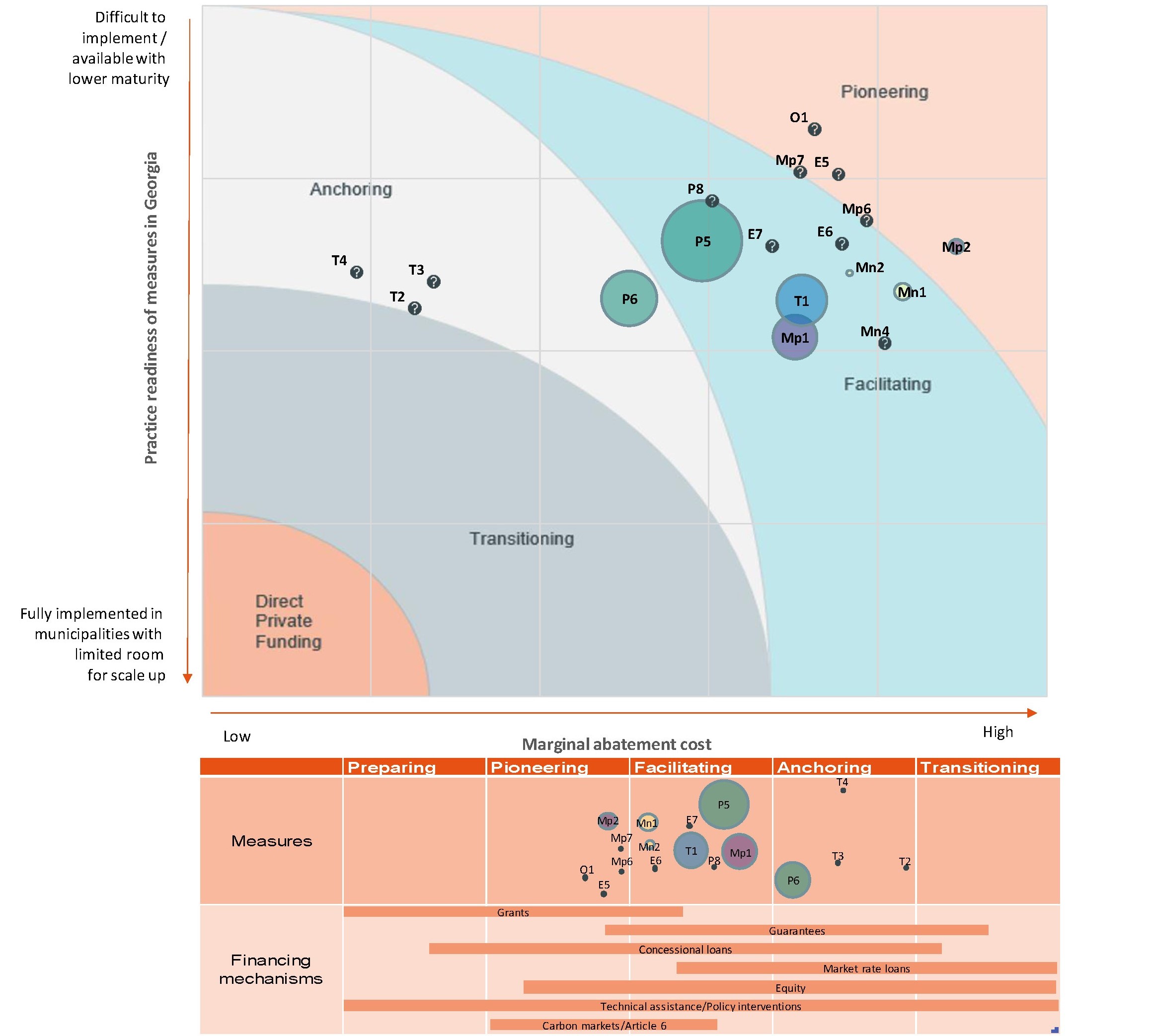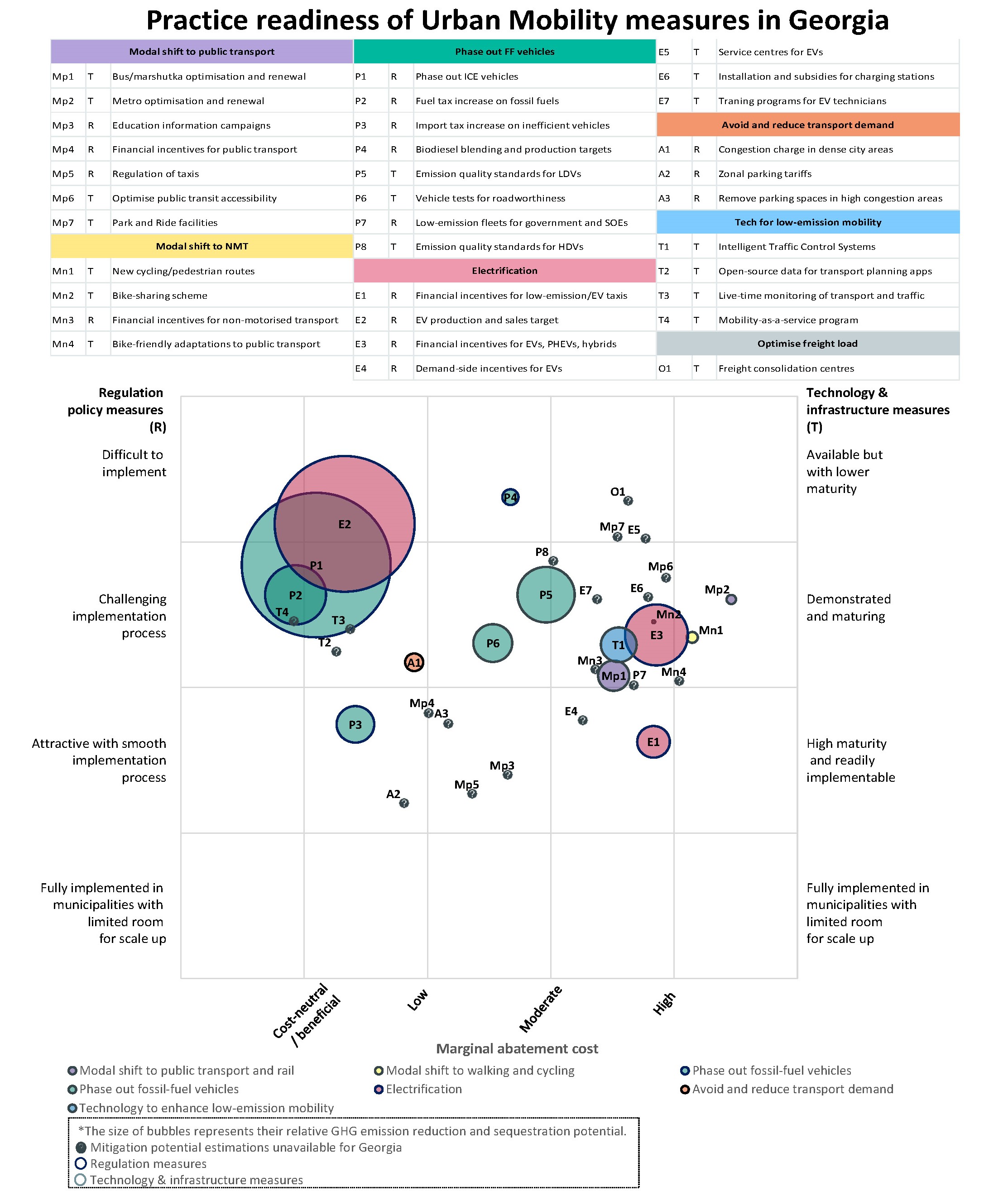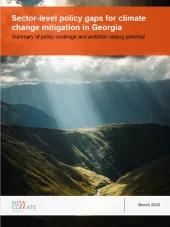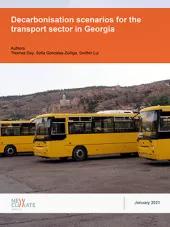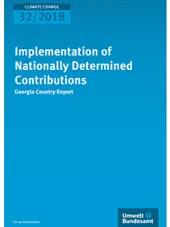This report provides an overview of the landscape for urban mobility mitigation measures for Georgia. It presents a comprehensive mapping of mitigation options available in the subsector, along with discourse on the measures’ mitigation potential, abatement costs, key barriers of uptake, financing options, and applicability to the Georgian context. The results can be used by policymakers and institutions to advance the planning, financing and implementation of Georgia’s transport sector targets and urban mobility objectives as presented in Georgia’s NDC, 2030 Climate Strategy and 2021-2023 Action Plan.
Main findings:
Our study finds that there exist many immediately accessible and attractive urban mobility measures available for Georgian municipalities (see Figure 1 below). These measures (low-hanging fruit) have high political and/or technological readiness, high mitigation potential, and neutral to low abatement costs for the government, although none of the measures have yet to become standard practice in municipalities across the country. Readily available measures primarily include policies for public transport and avoiding/reducing transport demand. Low-cost but high-mitigation-impact options also include regulation measures in electrification and phasing out fossil fuel vehicles, although this is less ready for the Georgian context due to both political and social barriers. In contrast, there also exist measures with high abatement costs yet growing readiness politically and technologically, e.g., electrification and non-motorized transport, due to their potential to enhance economic productivity and socio-economic welfare. Many measures have also already been partially implemented or studied in select Georgian municipalities, reducing the administrative and political burden for acceleration or replication in other jurisdictions. However, municipal governments need to consider the wider implications of the measures aside from costs, readiness, and mitigation potential; most measures come with unique financing, monitoring and enforcement, cultural, social equity, and political barriers to adoption in Georgia.
A large range of technology and infrastructure measures remain in need of financing across the spectrum of developmental stages for Georgian municipalities and there exists an array of applicable international finance sources with substantial project portfolios in Georgia and strategic interests in urban mobility (see Figure 2). However, significant barriers currently impede the accessibility of this finance for municipalities.
Detailed preparation is needed to access project funding, and project appraisal efforts need to be coordinated and discussed with national policymakers, international finance institutions, and external partners. The administrative and coordination capacity required, as well as technical expertise with specific financial institutions and project types, are burdensome for resource-constrained municipalities. While large municipalities such as Tbilisi and Batumi are generally successful in efforts to access financing, many smaller municipalities do not fit the criteria for investment from international donors without support from national government mechanisms. To even reach an advanced project development stage, large technical assistance streams are often needed to carry out pre-requisite project appraisal, feasibility studies, cost-benefit analysis, and financing proposals. The lack of a national transport coordinating entity in Georgia exacerbates the resource constraints on municipalities, and further causes a shortage of national strategies, policy signals, investment plans, and implementation guidelines that give confidence to investors and financiers and lubricates finance flows. Setting up a national coordinating entity for transport to support municipal project development efforts, the building of institutional capacity for municipalities (particularly smaller ones), and the establishment of a national fund to coordinate and award municipal projects could help further enable finance access for municipal urban mobility projects in Georgia. 